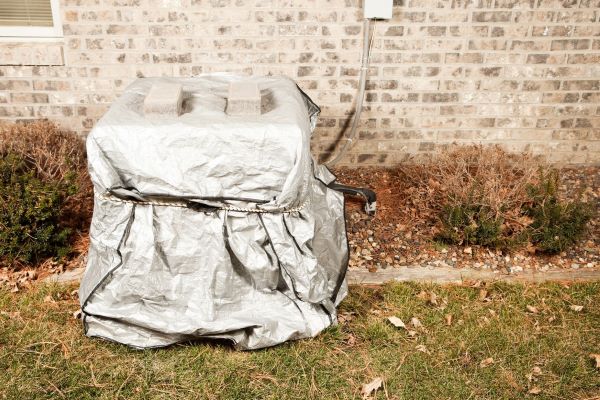The demands placed on your HVAC (heating, ventilation, and air conditioning) system vary with the seasons. Making sure your HVAC system is ready for seasonal changes is crucial to ensuring peak performance and efficiency all year round. You may save energy expenses, enhance indoor air quality, and prevent unplanned HVAC system malfunctions by being proactive with system maintenance and care. In this guide, we’ll explore some practical tips for preparing your HVAC system for seasonal changes.
Spring and Fall: Transition Seasons
Spring and fall are transitional seasons when temperatures fluctuate, and your HVAC system may need to switch between heating and cooling modes frequently. During these times, it’s crucial to perform routine maintenance tasks to ensure your HVAC system is in optimal condition.
- Change Air Filters
Changing the air filters on a regular basis is one of the easiest yet most crucial maintenance procedures for your HVAC system. Airflow is restricted by dirty filters, which lowers efficiency and indoor air quality. Change disposable filters every one to three months, or washable filters as needed and reuse them.
- Clean Air Ducts and Vents
The air ducts and vents in your house may get clogged with dust, grime, and debris over time, which may hinder airflow and lower efficiency. Schedule professional duct cleaning services to remove buildup and improve indoor air quality.
- Check Thermostat Settings
As temperatures fluctuate during the transition seasons, adjust your thermostat settings accordingly. If you want to maximize energy efficiency and automate temperature adjustments, think about upgrading to a smart or programmable thermostat.
- Schedule Professional HVAC Maintenance
Make an appointment for a professional HVAC maintenance service before the beginning of each heating and cooling season. A qualified technician can inspect, clean, and tune up your HVAC system to ensure it’s operating efficiently and reliably.
Summer: Hot and Humid
Summer brings sweltering heat and high humidity levels, placing additional strain on your HVAC system. To keep your home cool and comfortable during the summer months, follow these tips:
- Clean Outdoor Unit
To guarantee enough airflow and avoid overheating, clean the outside condenser unit often of dirt, leaves, and plants. To ensure sufficient clearance, trim any vegetation surrounding the unit.
- Check Refrigerant Levels
Low refrigerant levels can impair your HVAC system’s cooling performance and efficiency. To monitor refrigerant levels and refresh the system if needed, schedule a professional checkup.
- Seal Air Leaks
Check your home’s ducting, windows, and doors for air leaks that might let hot air in and cool air out. Seal any gaps or cracks with weatherstripping, caulk, or duct sealant to improve energy efficiency.
- Install Ceiling Fans
When used with your HVAC system, ceiling fans may assist disperse cool air more efficiently and lighten the strain on your air conditioner. To generate a refreshing breeze, adjust your ceiling fans to whirl counterclockwise.
Winter: Cold and Dry
During the winter months, your HVAC system works overtime to keep your home warm and comfortable. To ensure reliable heating performance and energy efficiency during the winter, consider the following tips:
- Insulate and Seal
Proper insulation and sealing are essential for retaining heat and preventing energy loss. ITo reduce heat loss, caulk gaps and cracks around windows, doors, and ducting, and insulate crawl spaces, attics, and walls.
- Schedule Furnace Inspection
Arrange a professional furnace check prior to the commencement of the heating season to guarantee the safe and effective functioning of your heating system. The furnace filter should be cleaned or replaced, and any wear or damage should be noted.
- Program Thermostat
Take advantage of programmable or smart thermostats to optimize heating schedules and reduce energy consumption. Lower the temperature when you’re away from home or asleep, and raise it when you’re awake and active.
- Consider Humidification
The dry air of winter can cause discomfort and respiratory problems. To maintain ideal interior humidity levels and enhance comfort throughout the winter, think about installing a whole-house humidifier.
Conclusion
Preparing your HVAC system for seasonal changes is essential for ensuring optimal performance, efficiency, and comfort year-round. Implementing these doable suggestions and arranging routine maintenance may increase indoor air quality, save energy expenses, and prolong the life of your HVAC system. To guarantee your system runs efficiently and securely, never hesitate to seek the advice of a certified expert in HVAC repair in Wilmington before beginning any complicated repairs or maintenance procedures.

